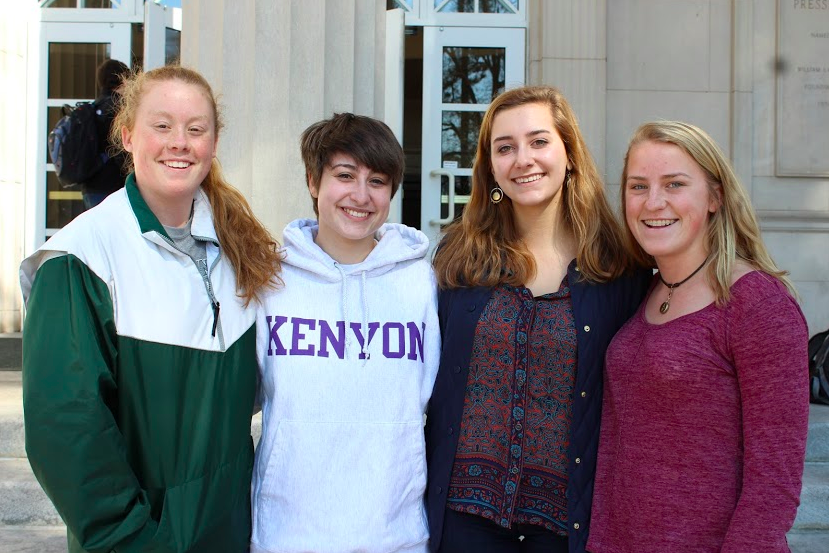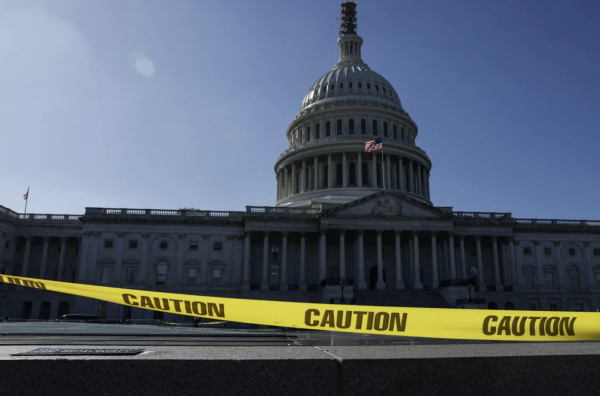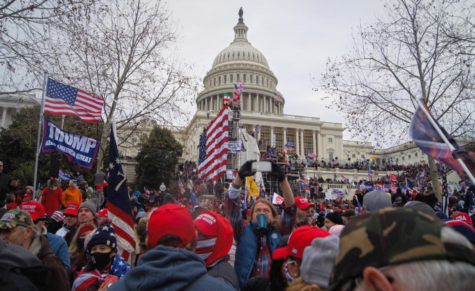Students weigh in on 2016 presidential primaries
Incriminating emails, a huge wall, and the fight against ISIS are all topics that have dominated the media in 2016. It is the season of the cutthroat presidential election. Campaigning started last summer, yet nine months remain until Election Day. The first step is determining which candidate will represent each party. Voters will decide the winning candidates through a combination of political primaries and caucuses across the country. Iowa infamously began the state caucuses on Feb. 1, followed by the New Hampshire primary on Feb. 9, South Carolina Republican primary on Feb. 20, and Nevada caucuses on Feb. 20 and 23. The South Carolina Democratic primary will take place on Feb. 27, followed by a slew of state primaries on March 1.
While the results of the primaries and caucuses are well known, the details of choosing a party’s candidate can be complicated. The process behind primaries and caucuses varies from state to state, and between political parties. The entire process will finish with the national convention for each political party, where delegates will vote to decide a party nominee. The results of primaries and caucuses determine how many delegates will vote for a specific candidate at the national convention this summer.
On Feb. 1, Iowans gathered to nominate presidential candidates. The caucus resulted in an extremely close race between two of the Democratic candidates, former Senator Bernie Sanders and former Secretary of State Hillary Clinton. Clinton won 23 delegates and Sanders won 21 delegates. Because the Iowa caucus has no minimum percentage of the popular vote a candidate must win to win delegates, the number was much more spread out in the Republican caucus. Senator Ted Cruz won with eight delegates, but Donald Trump and Senator Marco Rubio followed close behind with seven delegates. Former Florida governor Jeb Bush, who dropped out of the race on Feb. 20, Ben Carson, and Ohio governor John Kasich won a few delegates as well. Even though not many Upper School students can vote, many were discussing the results.
“It’s important to get an early start in politics,” said sophomore Casey Monyak.
Many students concur that the political world is still one they can actively participate in.
“Students should be involved in politics because politics affect everyone, even if they can’t legally vote,” said sophomore Jaclyn Mulé. “If you are given the right to vote, you should be knowledgeable about [current politics].”
The caucuses have revealed the surprising power of outsiders like Sanders and Trump. Trump’s longstanding advantage was tested during the Iowa caucuses, but confirmed during the New Hampshire primary, which he and Sanders won.
“Trump is the best thing Hillary could have asked for. Regardless of the policies, [the election is] also about experience,” said junior Young Conservatives leader Bradley Jones. “People like that he is not made by Washington, but if I’m going to court, I want a real lawyer to defend me, not an actor playing lawyer.”
Trump’s campaign has shown polarizing views not only from each party but also from each voter around the country. He has made headlines with his stern stance on immigration and one-liners.
“I think [Trump’s campaign] has divided voters a lot,” said Mulé. “There is a group of people who support Trump because some of the stuff rings true to them, but it kind of creates this reality show atmosphere which has distracted voters from the real issues.”
In the New Hampshire primary, Trump secured an easy victory with 10 delegates. Kasich, the runner up, won four delegates. In the Democratic primary, Sanders won 15 of the delegates, in comparison to Clinton’s nine. Sanders’s recent success has surprised many, who viewed Clinton’s campaign as invincible.
“I think that Bernie Sanders won because he is from Vermont, and many times if you are from a neighboring state you have a better chance of winning that state,” said Monyak.
Monyak believes Clinton is the most qualified to be president.
“She has run a successful campaign before, and she was secretary of state,” said Monyak. “She’s the one with the most political experience, unlike the other political candidates.”
Other students favor different candidates.
“Out of the presidential candidates, the most qualified is John Kasich because he is currently the governor of Ohio, and in 1997 he led the house committee to balance the budget, which was the last time it was balanced,” said Mulé.
Electability is still one of the most important factors when considering a candidate, and can outrank some of their successes in other fields.
“I’m actually supporting Marco Rubio because I think he can actually win, and I would rather have him win than Sanders, Clinton, or Cruz,” said Mulé.
Young Republicans co-leaders Jones and junior Wilson Wheeler both grimaced when asked which candidate they were supporting. They agreed on Bush, who recently dropped out of the presidential race, and Kasich.
“I think that I like them more than any of the other candidates who have a decent chance. At this point, it is hard to separate electability from the politics,” said Jones. “There is still 95 percent of the country left to vote [for each party’s candidate]. I think the results of future primaries can change a lot.”
Beyond electability, Upper School students have chosen their candidates due to their stance on several important issues.
“Foreign policy is the biggest thing,” said Jones. “I think we need a president who will uphold commitments on foreign policy.”
A political debate frontrunner has been the topic of terrorist group ISIS (Islamic State of Iraq and Syria), and each candidate strives to offer something new to the table.
“We had a chance to prevent ISIS from becoming what it is now,” said Wheeler. “I think our foreign policy needs to step back and look at what we are dealing with.”
Along with foreign policy, the economy is a center for discussion, and with 2016 America has witnessed a whole new wave of radically different candidates, like Bernie Sanders.
“I really think the most important issue right now is restoring growth to the economy because that will increase jobs and increase wages for working class people,” said Mulé.
As a result, she strongly disagrees with the policies of Sanders.
“I believe the free market has made America into what it is today, and Bernie Sanders wants to limit free market trade,” said Mulé. “Bernie Sanders’s high tax rates would only discourage work and innovation, like technology and new companies.”







